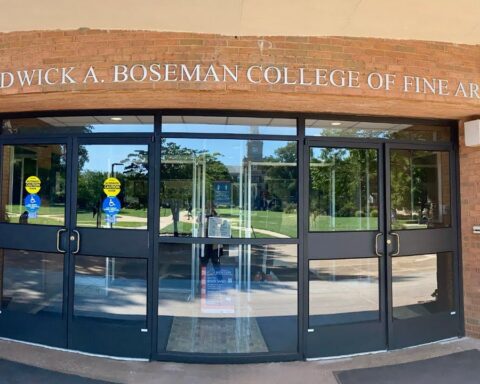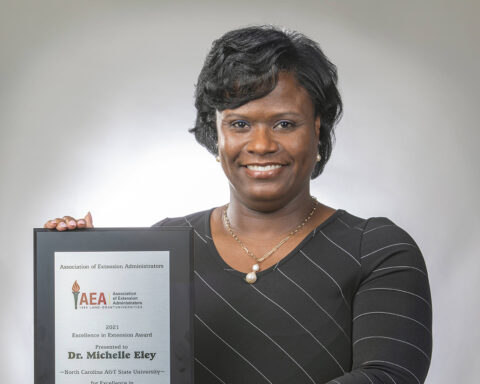By Jackie Torok
North Carolina Agricultural and Technical State University Assistant Vice Chancellor of Budget and Planning Chartarra Joyner and Checo Rorie, Ph.D., professor and chair of the Department of Biology in the College of Science and Technology, are among 30 leaders selected to participate in the University of North Carolina System’s 2023 Executive Leadership Institute.
This is the fourth cohort of the 10-month program, which is designed to build the next generation of top leadership from within the UNC System. Its curriculum provides an overview of UNC System operations and leadership development opportunities, and sessions are designed to foster collaboration and partnerships among participants and their institutions.
Joyner’s 20-year career has spanned several industries, including financial services, health care and academia, in roles ranging from accounting manager and customer support manager to global process owner, strategic planning director and business analyst. She joined A&T in 2012 as associate director of budget and planning and senior budget analyst prior to her current position, where is responsible for the ongoing maintenance, financial analysis, management and administration of budget information to the university’s divisions and departments.
Joyner earned her B.S. in accounting from Fisk University in 1996 and became a Tennessee Quality Award Examiner in 2002, Certified Six Sigma Black Belt and Certified Six Sigma Green Belt, both in 2004. She serves as treasurer of the shift_ed (formerly Say Yes Guilford) Board of Trustees, member of the National Association of Colleges and Universities and State Association of Colleges and Universities, and is affiliated with other professional and civic organizations.
Rorie earned his B.S. in biology from Clark Atlanta University in 1998 and Ph.D. in toxicology from the University of North Carolina at Chapel Hill, with a postdoctoral fellowship in biochemistry at New York University and a second postdoctoral fellowship as a SPIRE Scholar at UNC-Chapel Hill. He joined the Department of Biology at A&T as a professor of genetics in 2008 and has a research laboratory focused on breast cancer health disparities in African American women. He is the principal investigator (PI) and director of the National Institutes of Health/National Institute of General Medical Sciences-funded Maximizing Access to Research Careers grant that supports undergraduate students in biomedical research. He also is a councilor on the executive board of the North Carolina Society of Toxicology and partnership chair of the Board of Science Communicators of North Carolina.
Rorie is the PI of a National Science Foundation-funded Historically Black Colleges and Universities-Undergraduate Program/Broadening Participating Research grant that studies the role science capital plays in African American student retention and persistence in science. Along with his colleagues, he recently established NoireSTEM LLC, a company designed to help diversify and strengthen STEM majors and careers. Additionally, also established the Men’s Roundtable Biology group, which aims to support African American men in the pursuit of careers in medicine, dentistry, health care, and science.
“The UNC Executive Leadership Institute leverages the incredible expertise of our leadership, faculty and staff across the UNC System,” said Lynn Duffy, senior associate vice president for leadership and talent acquisition at the UNC System. “The institute is a key program supporting our overall talent retention, executive development and succession planning efforts.”
Learning modules are designed to deepen expertise essential for success at the executive level. Five interactive and experiential immersion modules will be delivered via a hybrid of virtual and face-to-face instruction at A&T, UNC-Chapel Hill and UNC Charlotte over the course of the program. The team and individual executive coaching component is provided in partnership with UNC Wilmington.
Upon completion of the program, participants will receive a certificate and the benefits of a mentoring relationship. Graduates will have the opportunity to pay it forward as mentors for future cohorts, ensuring promising talent continues to develop across the UNC System.





